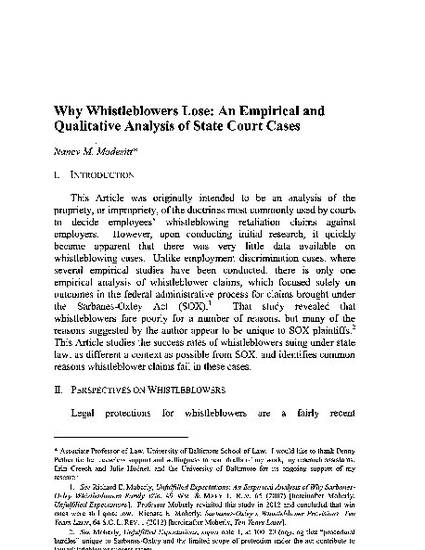
This Article was originally intended to be an analysis of the propriety, or impropriety, of the doctrines most commonly used by courts to decide employees’ whistleblowing retaliation claims against employers. However, upon conducting initial research, it quickly became apparent that there was very little data available on whistleblowing cases. Unlike employment discrimination cases, where several empirical studies have been conducted, there is only one empirical analysis of whistleblower claims, which focused solely on outcomes in the federal administrative process for claims brought under the Sarbanes-Oxley Act (SOX). That study revealed that whistleblowers fare poorly for a number of reasons, but many of the reasons suggested by the author appear to be unique to SOX plaintiffs. This Article studies the success rates of whistleblowers suing under state law, as different a context as possible from SOX, and identifies common reasons whistleblower claims fail in these cases.
